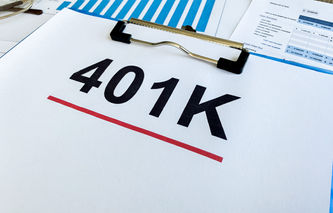In this article, we're going to be discussing 401(k) withdrawals. This includes early withdrawals, and allowed distributions under current rules. We're also going to discuss potential tax penalties that may apply to early withdrawals. Pension plans such as IRAs and 401(k) plans were put into place by the government to encourage families to save money towards retirement. It only makes sense the government discourages the use of these funds for purposes other than retirement. In fact, the tax law imposes an additional 10% penalty on certain early distributions from these funds.
Premature 401(k) Withdrawals
An early withdrawal involves any money withdrawn from an account before reaching the age of 59 1/2. This particular withdrawal rule is not unique to 401(k) plans, but also applies to:
A qualified employee annuity plan
An IRA that is not an Educational IRA
A qualified employee plan (such as a 401(k))
A tax sheltered annuity plan, such as a 403(b) plan, that applies to employees of public schools or other tax exempt organizations
If the withdrawal is taxable, which is usually the case with a large proportion of the money in a 401(k) account, then not only does the accountholder have to report this as income on their federal income tax return, but they are also subject to an additional 10% penalty.
Rollovers and Distributions
The Internal Revenue Service does not impose a penalty on withdrawals or distributions that are rolled over into another retirement plan. The investment is still serving its intended purpose: retirement income.
Rollovers
From the IRS's perspective, a 401(k) rollover occurs when an individual withdraws cash, or other assets, such as stocks, bonds, and mutual fund shares from one qualified employer's plan, and transfers it into another 401(k)plan, a qualified retirement plan, or a Traditional IRA within 60 days.
Allowable Distributions
The IRS also allows for penalty-free withdrawals from a qualified retirement plan that falls into one or more of the following five categories:
Distributions made to an estate or beneficiary after the owner's death.
Distributions made because an individual became permanently disabled.
If medical expenses exceed 7.5% of the accountholder's adjusted gross income, they can make a withdrawal up to the amount of their medical expenses in excess of the 7.5%.
Distributions made to the IRS to pay a levy on the plan itself.
Distributions made as part of a series of substantially equal periodic payments over the life expectancy of the owner and the beneficiary. If these withdrawals come from a plan other than an IRA (as is the case with a 401(k) plan), then the individual must separate from their employer before payments begin for this exception.
Withdrawal Exceptions
The following three exceptions also apply to 401(k) plans:
Distributions or withdrawals made after termination of employment, if the separation from an employer occurred in or after the calendar year the individual reached age 55.
Distributions of dividends from employee stock ownership plans.
Distributions made to an alternate payee under a qualified domestic relations order. (This often happens as part of a divorce settlement.)
Hardship Withdrawals
The exact rules followed by each plan will vary, but generally a 401(k) hardship withdrawal is allowed if the accountholder experiences an immediate and heavy financial burden. To take a hardship withdrawal they must have no other financial means of meeting this hardship. Examples of financial hardship include:
Potential eviction or foreclosure on a principal residence.
Substantially all of the individual's current and anticipated income and assets are needed to meet their current and anticipated ordinary and necessary living expenses.

A hardship withdrawal cannot be claimed if the repayment of money owed another party merely causes a financial burden. That is, the burden of proof must be greater than merely the inconvenience of repaying a debt. There must be no other way of paying back the money owed.
Tax Implications of Withdrawals
All of the above noted exceptions apply only to the 10% penalty tax. For example, money withdrawn from a 401(k) that meets one of the above exceptions is still subject to federal income tax withholding. In fact, it may be necessary to make estimated tax payments to avoid withholding penalties. This article started off with a reminder that the government established retirement plans such as 401(k) plans to provide for retirement income. However, the government realizes that under certain conditions, individuals may need to make a withdrawal before retirement occurs. Dipping into a retirement fund is a big decision, and is worth discussing with a tax advisor, lender, or financial consultant to see if a less expensive alternative exists.



